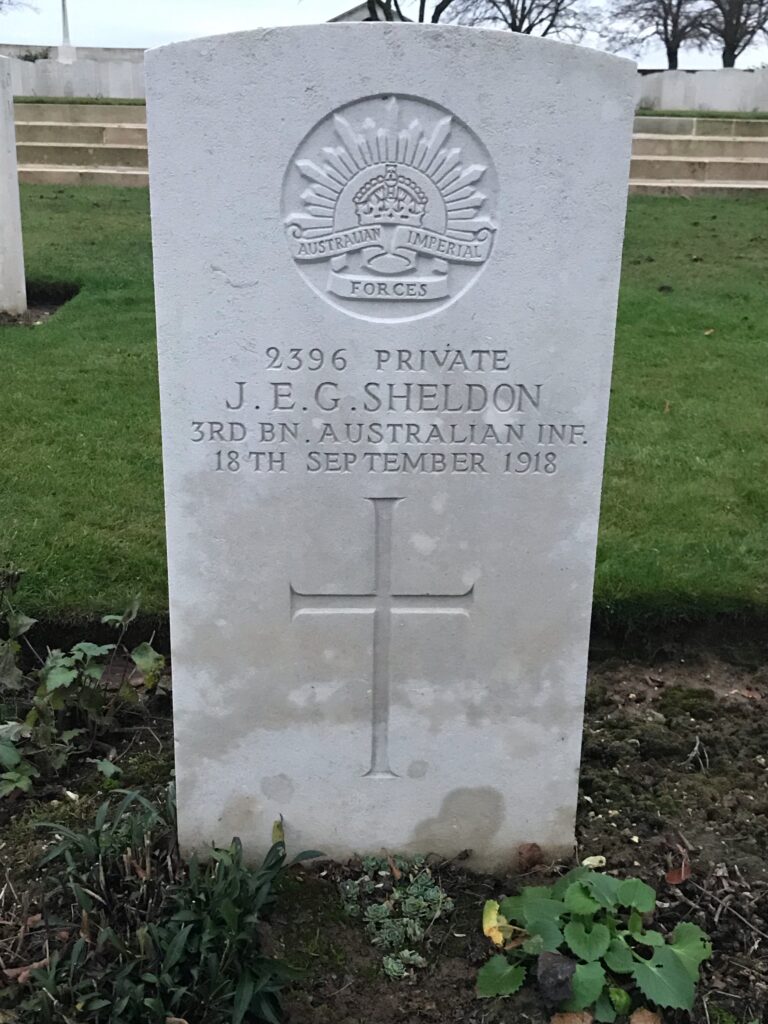War is a dreadful thing and a horror for all involved, including the civilians who are swallowed up in it.
Much of my working life has been caught up in studying and teaching about war and such is its influence on the development of Australia, that our governments insist that past conflicts must be a key part of the studies of all students. The prominent Australian historian, Geoffrey Blayney corrected the common perception when he wrote that ‘it is not that war breaks out, rather that peace breaks out.’ He was right: war is the natural state of human kind rather than peace. In the last 125 years, Australia has been at war for at least 50 of those years although many would consider ourselves a peaceful nation.
My family, like most, has been affected by war even though we live in a far-off land, removed from the conflict that so besets others. My grandfather was there on that first ANZAC day in the Great War as a sailor in the merchant navy, rowing the man ashore at Gallipoli on the 25th of April. He remembered a soldier jumping ashore saying, ‘this’ll be jam.’ History shows us that it was anything but. He returned 8 months later when they took the remaining soldiers off in his ship. An officer in the spirit of mateship said, ‘take him first, he’s worse off than me,’ and in the time it took my grandpa to ease the private on board, the injured officer slipped quietly into the sea, never to be seen again by my grandfather or any of his relatives.
My father once asked of his uncle who served in the same war, ‘what did you learn?’ to receive the tart reply, ‘I learned to smoke now go away and don’t bother me again.’ The impact on those who served was tremendous, yet often less explored was the impact on those who were on the Home Front. My grandmother carried a picture of a soldier in uniform and 50 years later she made a detour with my father on the battlefield graves of Europe to see the man she never forgot. I wonder what my father thought about this man who could have replaced his own father, William. In a strange twist of fate, William himself had only been saved from the terrible tragedy of the trenches by a severe bout of sickness as he lay over in Egypt, preparing to travel to Gallipoli. Instead, he was forced home to Australia, despite his strong resolution to fight, where he would meet my grieving grandmother and marry her some 10 years later.
And somewhere in Belgium in the mud lies a young man who should have raised my mother. He was killed in the last month of the war and was not there when his sister died of a stroke some years later, leaving my mother (his only niece) a year-old baby, to be raised by strangers.
As we watch the news today, we see war in so many zones around the world: with hundreds of soldiers dying each day and thousands more civilians suffering death and life changing losses.
King David of Israel knew all about war. He was a killer, a seasoned warrior who had fought many battles for Israel and many lay dead at his hands. So full of blood were they that God forbade him building the temple of Jerusalem because of this ‘blood on his hands.’ That honour would instead to his son, Solomon. Yet, ironically, he was obedient to God when directed to war.
David knew the fear of hiding from enemies who would kill him and of going up against insurmountable odds. Throughout his long life, he would never be free from war. From facing the giant of the Philistine armies, Goliath, when he was a young teenager, to his own king seeking his life and forcing David to become a refugee and then even as an old man, having his son, Adonijah, attempt to supplant him, conflict was ever present.
David knew the hideous price that was to be paid in war, including battle against his own son, Absalom, who had previously usurped his throne. When Absalom was overthrown and slain by a soldier with a vendetta, David was beside himself with grief that his son, whom he loved more than life, was dead in battle.
We have a particular insight into David’s experiences: so many of these are found in the Psalms and we see the necessity of his actions. His enemies are God’s enemies and they can only be stopped by force. He follows God’s instructions in going to war. At times he is overwhelmed and he calls on God to save him when he is incapable of doing so and his very survival depends on God’s mercies. All of David’s emotions are laid bare to us as he stands, vulnerable before God and entirely dependent upon His mercies. In this selection of the Psalms we see David, famously walking through the ‘valley of the shadow of death’. But we also see his desire for a better world; to ‘dwell in the courts of the almighty’ and to live in a place which is free of conflict, safe in the peace and comfort that the Almighty provides. In David’s psalms we see a foretaste of the greatest conflict of all, when one of his descendants is executed by the Roman army and goes up against the evil one, knowing the greatest anguish of all as he dies for the sins of His people.
On this, our National Day of Commemoration, we wish that our studies could all be about peace but I know that this will never be the case until Revelation 21 is realised and one king rules over all and all nations come under Him.
